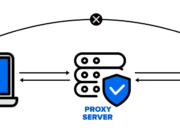
The technology industry is vast and diverse, encompassing various specialized roles. From creating user-friendly interfaces to ensuring application security, software engineers play essential parts in developing innovative solutions. As someone who has navigated software engineering jobs, I find it fascinating how each role in this field requires unique skills and expertise.
In the world of software engineering, roles can be broadly categorized. Front-end engineers focus on the user-facing aspects of applications, designing layouts and interfaces that users interact with. Back-end engineers, on the other hand, work behind the scenes to ensure the smooth functioning of applications, handling databases and servers.
Specialized roles such as Security Engineers and Data Engineers highlight the variety within software engineering. These roles involve protecting data and translating complex information into actionable insights, respectively. Each position offers exciting opportunities for growth and development, making software engineering a dynamic career path.
Key Takeaways
- Software engineering roles are diverse, each requiring unique skills.
- Front-end and back-end engineers have distinct responsibilities.
- Specialised roles offer exciting growth opportunities.
Fundamental Roles in Software Engineering
Software engineering involves designing, developing, testing, and maintaining software applications. Key roles include creating software, ensuring quality, and managing deployments.
Software Developer
As a Software Developer, I design and create software applications. I focus on solving real-world problems through coding and technical skills. Common programming languages I use include Java, Python, C++, Javascript, and HTML/CSS.
I use agile methodologies like Scrum to organise my work and collaborate with teams. Development involves designing, coding, debugging, and testing to ensure the application functions correctly. Version control tools, like Git, also help me track changes and collaborate with others efficiently.
Quality Assurance Engineer
The role of a Quality Assurance (QA) Engineer is essential for maintaining the reliability of software. I ensure that software applications function as intended through rigorous testing. Common tasks include writing test cases, executing tests, and debugging.
I use automated testing tools to validate performance and identify issues early. My primary goal is to find and fix bugs before the software reaches users. Techniques like automate, validation, and continuous integration ensure ongoing quality. I often work closely with developers to resolve issues.
DevOps Engineer
As a DevOps Engineer, I bridge the gap between development and operations, focusing on deployment and maintenance. My responsibilities include setting up environments, configuring servers, and ensuring smooth software deployment.
I use tools for continuous integration and version control to automate and streamline the development process. Cloud platforms like AWS and Azure help me manage and scale applications efficiently. Monitoring and troubleshooting are crucial parts of my job to maintain high performance and availability.
By focusing on these roles, I can deliver high-quality software that meets user needs and business objectives. These fundamental roles require a blend of technical skills, problem-solving abilities, and collaboration to succeed in the field of software engineering.
Specialised Software Engineering Disciplines
In software engineering, several specialised roles focus on different aspects of technology. Each role requires specific skills and caters to unique needs within the industry.
Front-End Engineer
As a front-end engineer, I work on the user-facing side of applications and websites. I ensure that everything you see and interact with runs smoothly.
My primary tools include HTML, CSS, and JavaScript, often supplemented with frameworks like React. My role involves designing and implementing user interfaces, improving user experience (UX), and making sure applications are responsive and accessible across devices. By working closely with UX designers, I turn their visions into functional, interactive designs that meet the needs of users.
Back-End Engineer
In contrast, back-end engineers concentrate on the server-side of web applications. My job is to build and maintain the systems that manage databases, security, and application logic.
I frequently use programming languages such as Java, Python, and PHP, along with databases like SQL and NoSQL. I create APIs that allow different parts of the application to communicate effectively. Scalability, performance, and data integrity are top priorities for me. Ensuring that the backend can handle large amounts of traffic and data without faltering is crucial.
Data Engineer
Data engineers specialise in building and maintaining the architecture that allows for data collection, processing, and storage.
In my role, I design and construct data pipelines, working with big data technologies and tools such as Hadoop and Spark. I focus on database management, data integration, and data visualisation. SQL and Python are commonly used languages in this field. My work enables other teams, like data analysts and scientists, to access clean, reliable data for their analyses. Ensuring data accuracy and performance is key.
Security Engineer
Security engineers play a vital role in protecting systems from cyber threats.
I specialise in developing security measures that safeguard applications and data. My responsibilities include conducting security audits, vulnerability assessments, and penetration testing. Languages such as Java, Python, and Ruby are often used. I focus on identifying potential security risks and implementing solutions to mitigate these threats. Constant vigilance and staying updated with the latest security trends are essential parts of my job.
Advancement and Career Growth

Senior Software Engineer
A Senior Software Engineer is a step up from mid-level positions. They typically have several years of experience and have honed both their technical skills and problem-solving abilities.
Senior roles often involve more complex projects and require a broad understanding of different programming languages and technologies. While coding remains a core part of the job, I am also expected to mentor junior developers and participate in strategic decision-making.
In terms of salaries, a Senior Software Engineer in Australia can expect to earn around AUD 120,000 to AUD 150,000 per year. Specialisations and certifications in specific technologies can further enhance my earning potential. Many companies value advanced degrees or continued education, though significant work experience is crucial.
Engineering Manager
Moving up to an Engineering Manager represents a significant shift from technical work to people management and strategic planning. This role demands strong leadership qualities and the ability to manage teams and projects.
An Engineering Manager oversees the development process and works closely with other departments, such as product management and quality assurance. I am responsible for setting development strategies, ensuring deadlines are met, and maintaining high code quality.
The average salary for an Engineering Manager in Australia ranges from AUD 150,000 to AUD 200,000 annually. A Bachelor’s Degree in a relevant field is often required, with many managers holding advanced degrees or certifications in management. Balancing technical expertise with management skills is key to excelling in this role.








Leave A Comment